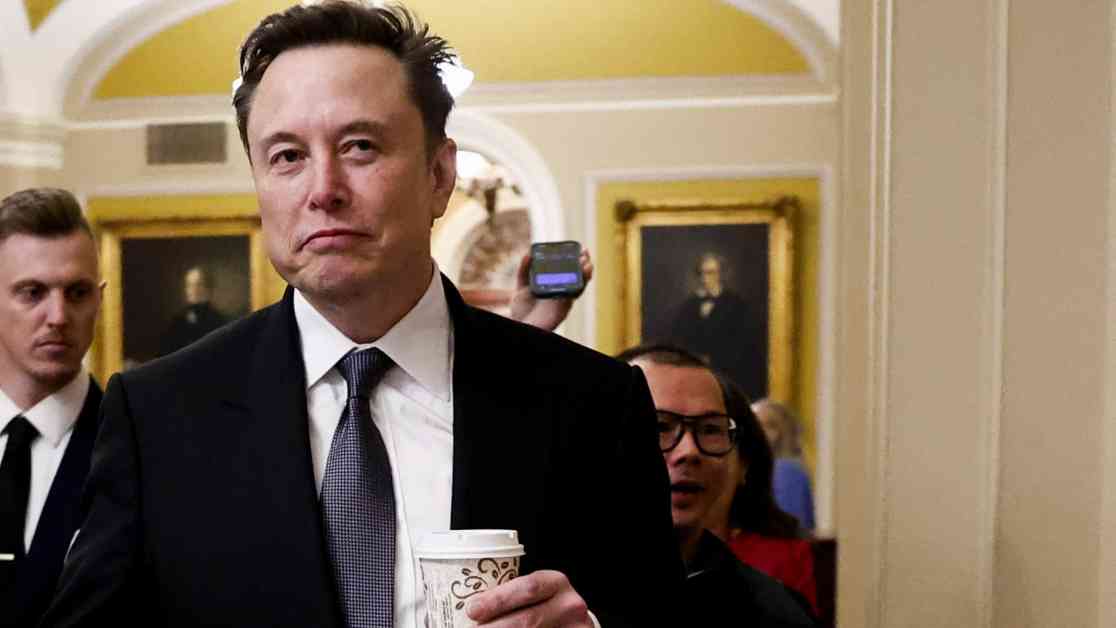Elon Musk and Vivek Ramaswamy’s Ambitious Push for Federal Spending Cuts
Entrepreneurs Elon Musk and Vivek Ramaswamy have taken Capitol Hill by storm with their bold plan to slash federal spending. Musk, the Tesla CEO, and Ramaswamy, a prominent businessman, have joined forces to champion fiscal responsibility through their outside advisory council, the Department of Government Efficiency (DOGE). Their mission is clear: advocate for a smaller federal government, reduced regulations, and a more private sector-oriented approach to public sector operations.
The Roadblocks to Massive Spending Cuts
During their recent visit to Congress, Musk and Ramaswamy encountered both support and skepticism from lawmakers, particularly Republicans who shared their vision of limited government intervention. However, the duo soon realized the daunting challenge ahead. Despite Musk’s ambitious goal of cutting federal spending by $2 trillion, the numbers simply don’t add up.
In fiscal 2023, the federal government spent a total of $6.1 trillion, with a significant portion already allocated to mandatory programs like Social Security, Medicare, and veterans benefits. This left a mere $1.7 trillion for discretionary funding, making the proposed $2 trillion in cuts virtually impossible without severe repercussions on national security and essential government services.
Exploring Alternative Cost-Cutting Measures
While Musk’s grand plan may face significant hurdles, some Republicans are considering alternative strategies to reduce government costs. Proposals such as requiring federal employees to return to the office full-time have gained traction among lawmakers seeking innovative solutions to streamline operations and cut unnecessary expenses.
Senators like John Cornyn, Susan Collins, and Joni Ernst have voiced support for bringing federal workers back into physical office spaces to maximize efficiency and eliminate wasteful spending on underutilized facilities. Despite potential resistance from federal employee unions, these initiatives represent a shift towards reimagining traditional work arrangements in the public sector.
The Complex Path Forward
As Musk and Ramaswamy navigate the intricate web of government bureaucracy and political dynamics, their quest for sweeping spending cuts faces significant challenges. While the concept of fiscal responsibility resonates with many lawmakers, the practical implications of implementing such drastic changes remain uncertain.
In the coming months, as the new administration takes office and policy discussions heat up, the fate of Musk and Ramaswamy’s vision for a leaner, more efficient government hangs in the balance. Whether through bold legislative action or incremental reforms, the road ahead is paved with obstacles and opportunities for those seeking to reshape the federal budget landscape.
















